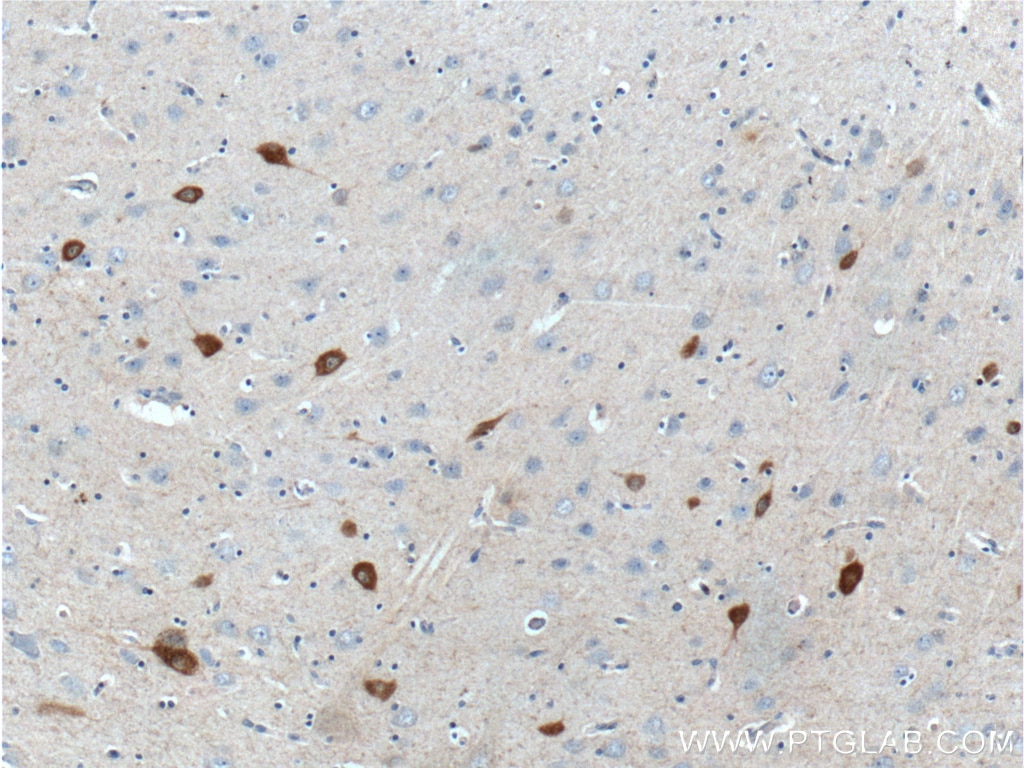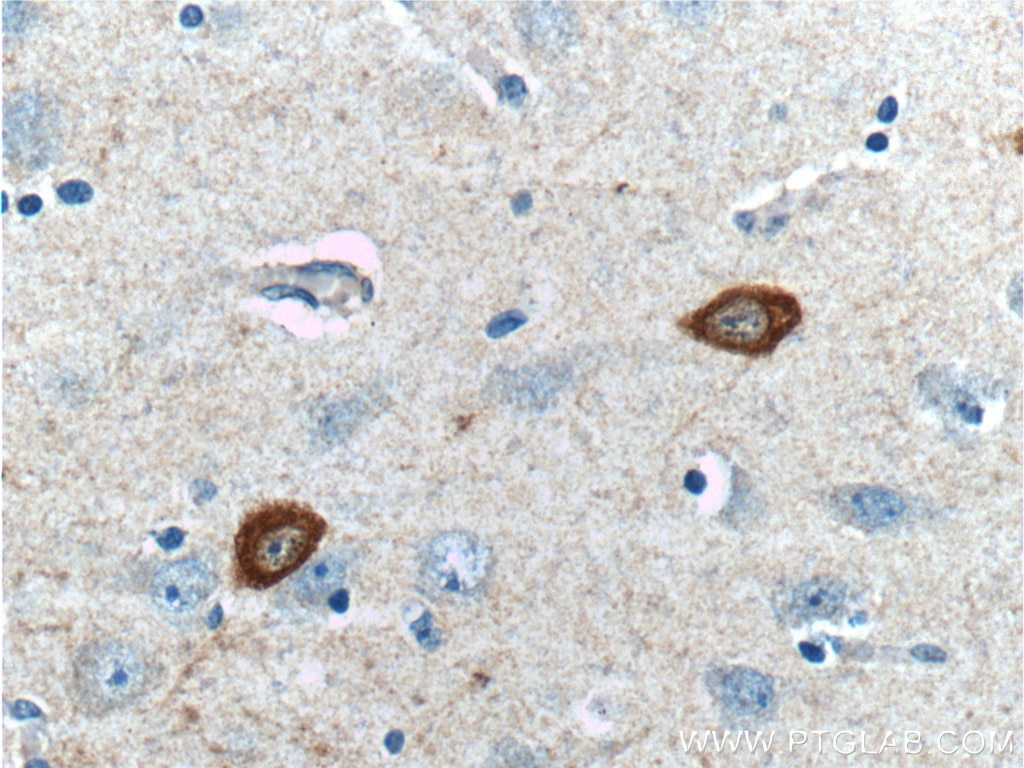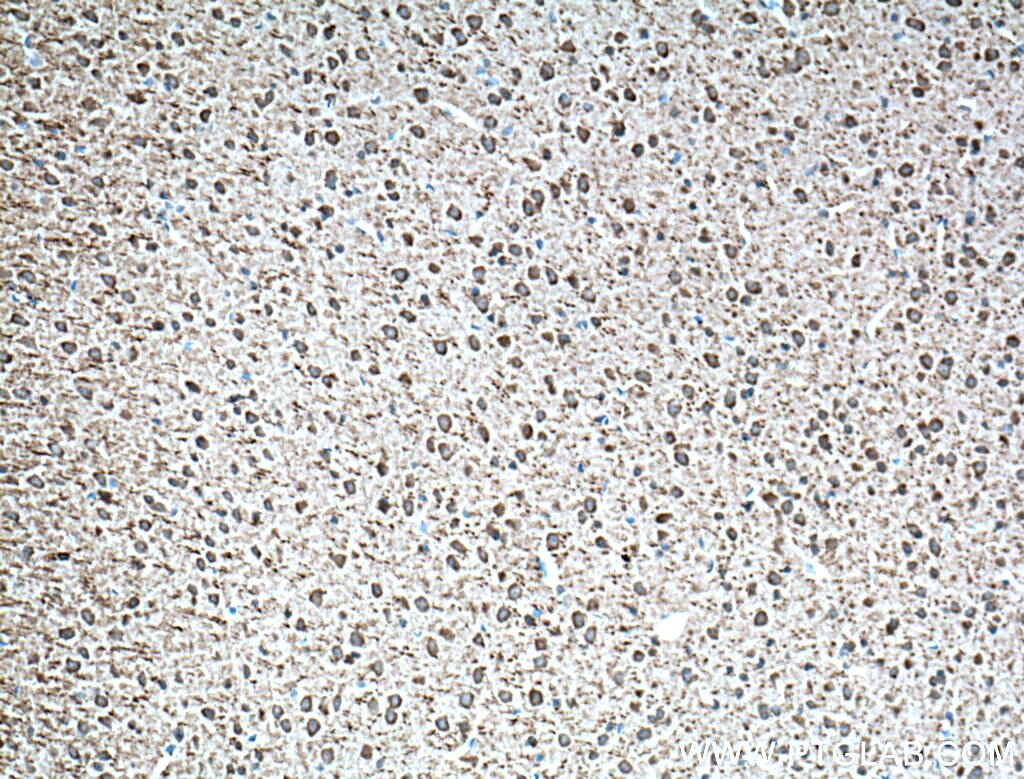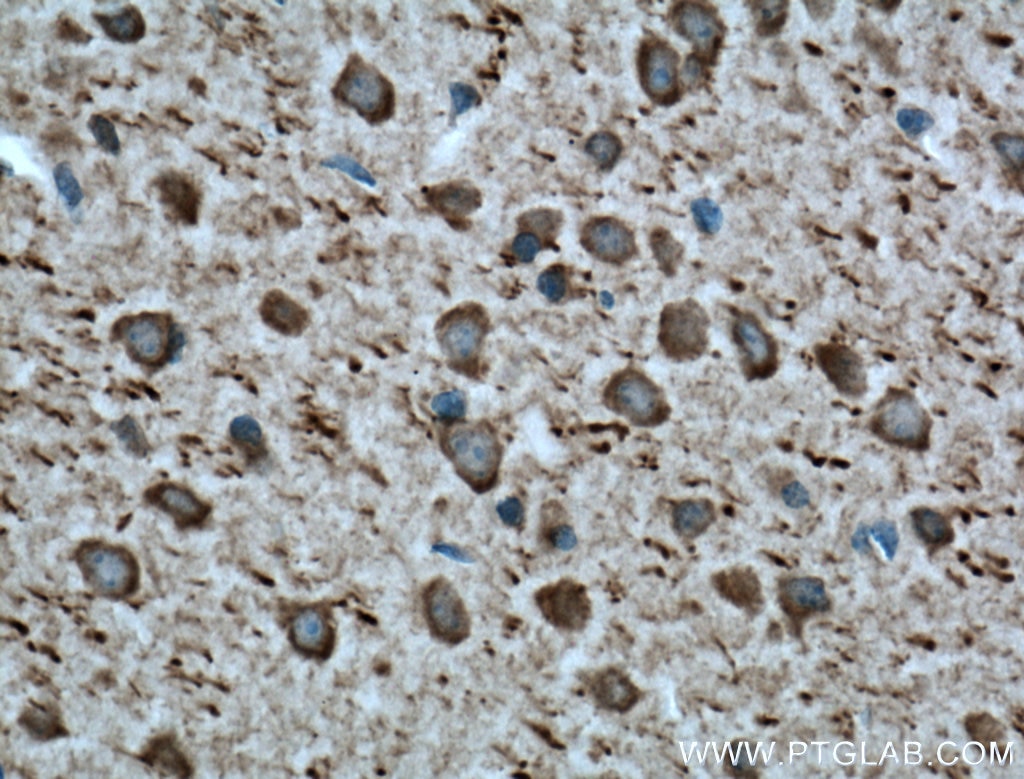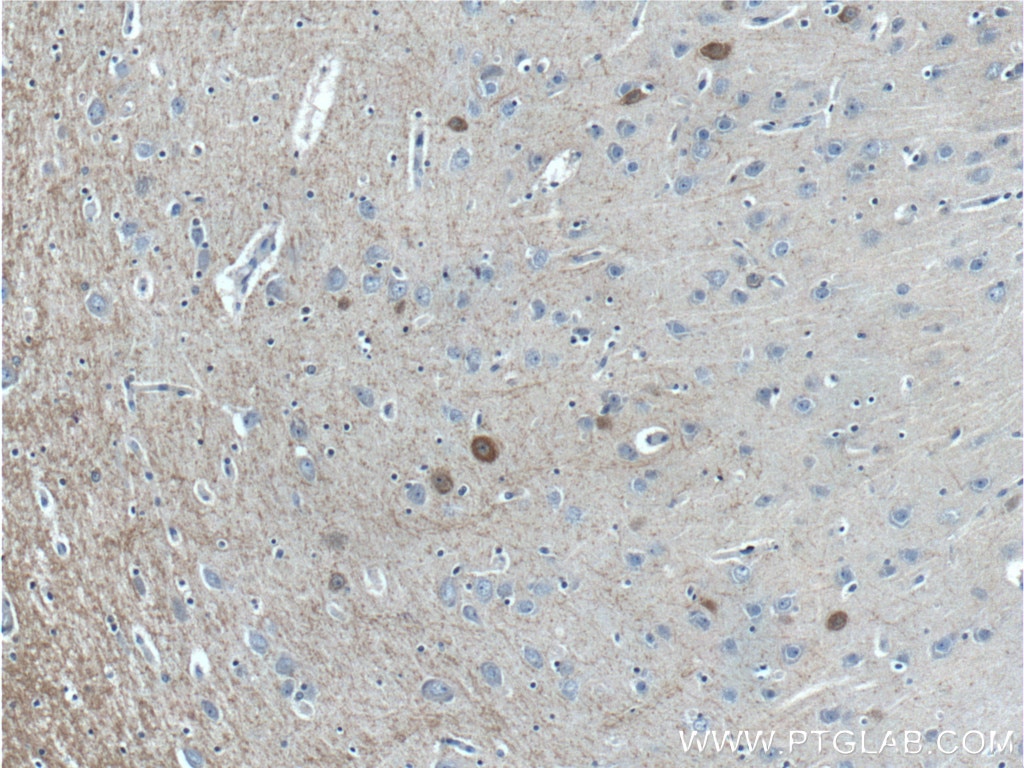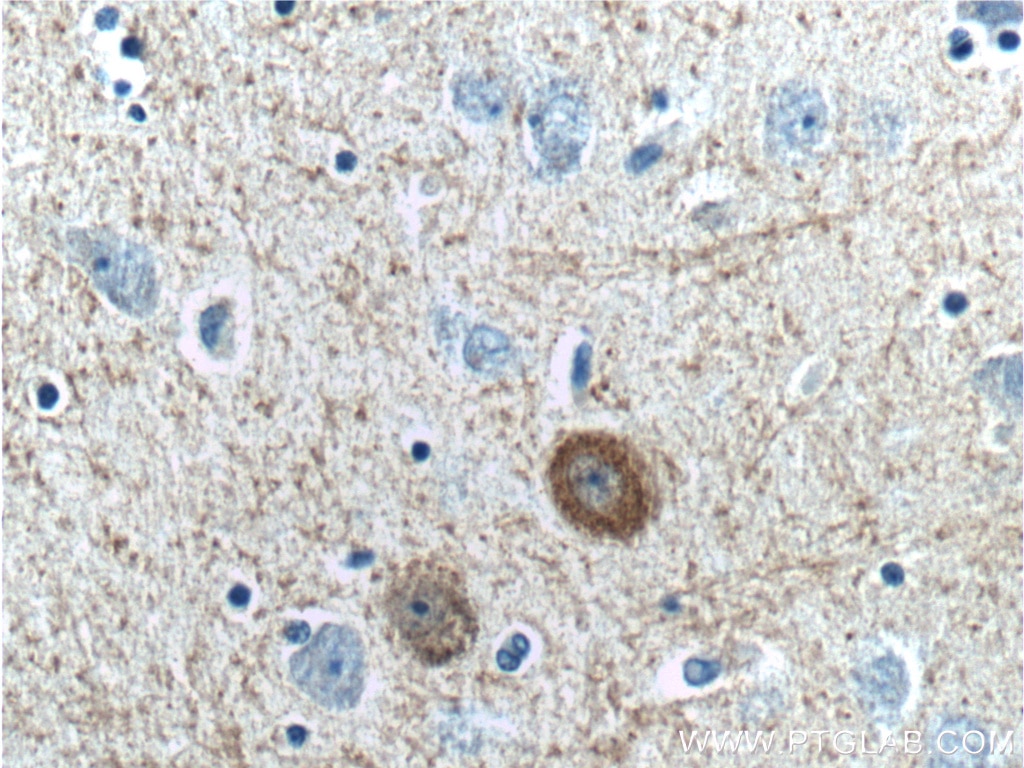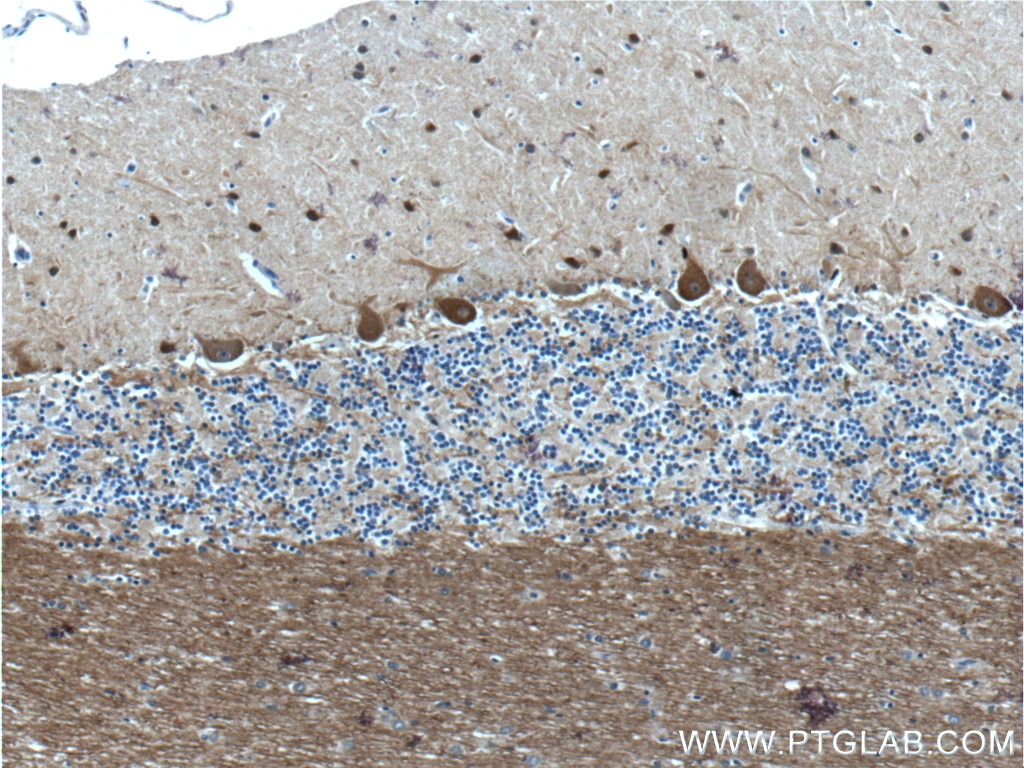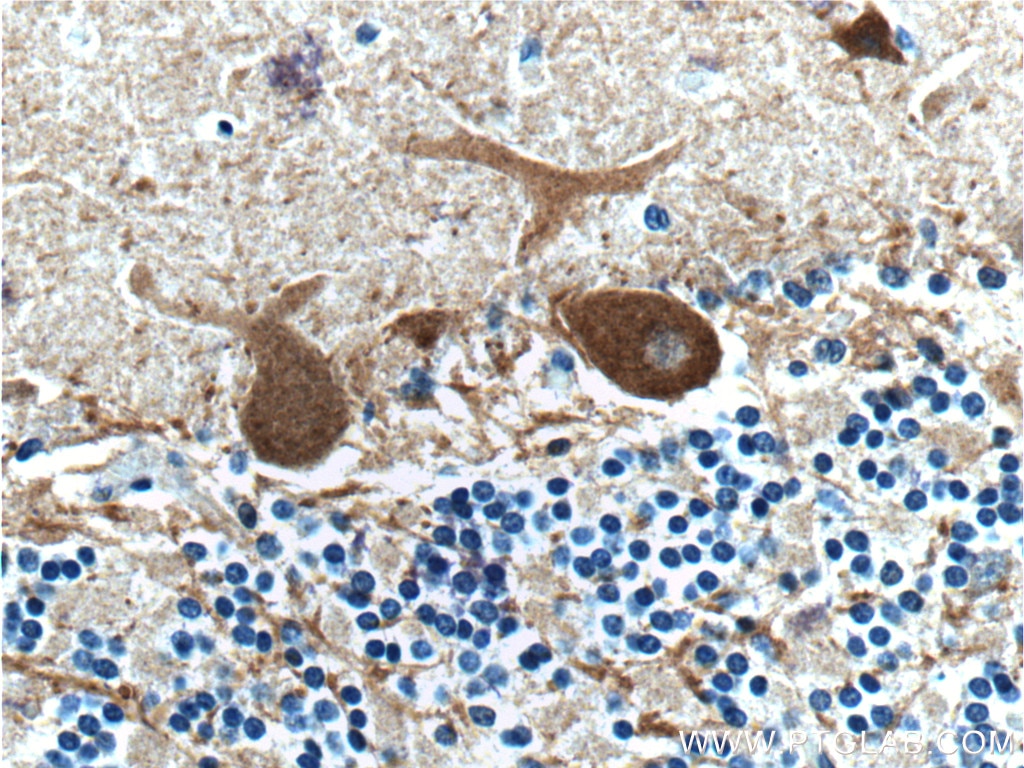Tested Applications
| Positive IHC detected in | human brain tissue, mouse brain tissue, human cerebellum tissue Note: suggested antigen retrieval with TE buffer pH 9.0; (*) Alternatively, antigen retrieval may be performed with citrate buffer pH 6.0 |
Recommended dilution
| Application | Dilution |
|---|---|
| Immunohistochemistry (IHC) | IHC : 1:50-1:500 |
| It is recommended that this reagent should be titrated in each testing system to obtain optimal results. | |
| Sample-dependent, Check data in validation data gallery. | |
Published Applications
| WB | See 6 publications below |
| IHC | See 3 publications below |
| IF | See 4 publications below |
Product Information
26521-1-AP targets Parvalbumin in WB, IHC, IF, ELISA applications and shows reactivity with human, mouse samples.
| Tested Reactivity | human, mouse |
| Cited Reactivity | human, mouse, rat, pig |
| Host / Isotype | Rabbit / IgG |
| Class | Polyclonal |
| Type | Antibody |
| Immunogen |
Peptide Predict reactive species |
| Full Name | parvalbumin |
| Calculated Molecular Weight | 12 kDa |
| Observed Molecular Weight | 12 kDa |
| GenBank Accession Number | NM_002854 |
| Gene Symbol | Parvalbumin |
| Gene ID (NCBI) | 5816 |
| RRID | AB_2880541 |
| Conjugate | Unconjugated |
| Form | Liquid |
| Purification Method | Antigen affinity purification |
| UNIPROT ID | P20472 |
| Storage Buffer | PBS with 0.02% sodium azide and 50% glycerol, pH 7.3. |
| Storage Conditions | Store at -20°C. Stable for one year after shipment. Aliquoting is unnecessary for -20oC storage. 20ul sizes contain 0.1% BSA. |
Background Information
PVALB is a high affinity calcium ion-binding protein that is structurally and functionally similar to calmodulin and troponin C. PVALB is expressed in high levels only in fast-contracting muscles and at lower levels in brain and several endocrine tissues. It is thought to be involved in muscle relaxation.
Publications
| Species | Application | Title |
|---|---|---|
Food Chem TMT-based quantitative proteomic analysis of porcine muscle associated with postmortem meat quality. | ||
Transl Psychiatry Gabrb2-knockout mice displayed schizophrenia-like and comorbid phenotypes with interneuron-astrocyte-microglia dysregulation. | ||
Front Cell Dev Biol Brevican, Neurocan, Tenascin-C, and Tenascin-R Act as Important Regulators of the Interplay Between Perineuronal Nets, Synaptic Integrity, Inhibitory Interneurons, and Otx2. | ||
J Nutr Biochem Postnatal high-fat diet sex-specifically exacerbates prenatal dexamethasone-induced hypertension: Mass spectrometry-based quantitative proteomic approach. | ||
Environ Toxicol Evaluation of TRPM2 Channel-Mediated Autophagic Signaling Pathway in Hippocampus and Cortex Tissues of Rat Offspring Following Prenatal Exposure to Elevated Alcohol Levels | ||
G3 (Bethesda) Deficiency of intellectual disability-related gene Brpf1 reduced inhibitory neurotransmission in MGE-derived GABAergic interneurons. |

